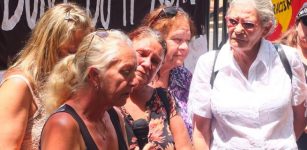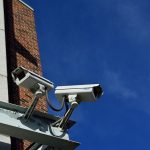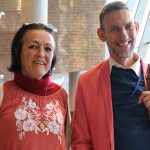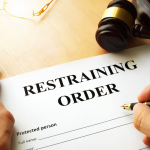End the Stolen Generation: An Interview with GMAR’s Aunty Hazel Collins

Currently, there are 15,000 Indigenous children living in out-of-home care in Australia. Aboriginal and Torres Strait Islander children are nine times more likely to be forcibly removed from their families, than non-Indigenous children.
A report released by Family Matters – a coalition of 150 Indigenous community leaders and child protection bodies – revealed these figures last week. The document also warned that if the current trend continues over the next two decades this number is set to triple.
It continues despite the apology
It’s been eight years since then Australian prime minister Kevin Rudd issued an apology to the nation’s First Peoples, acknowledging that tens of thousands of Indigenous children had been removed from their homes from the late 1800s right up until the 1970s.
And yet since the time the apology was delivered there’s been a 65 percent increase in the number of Indigenous children who’ve been placed in out-of-home care.
The numbers in NSW
The 2016 Productivity Commission report outlines that NSW has the highest number of child removals, numbering 6,210 as of June 30 last year. There were 67 out of every 1,000 Indigenous children in out-of-home care at that time, and this is compared with 6 out of every 1,000 non-Indigenous children.
The removals in this state are being carried out by the NSW Department of Family and Community Services (FACS).
Gaining the attention of the nation
A group called the Grandmothers Against Removals (GMAR) formed in early 2014 in the north-eastern NSW town of Gunnedah to advocate for this policy of child removals to be brought to an end.
GMAR brought the ongoing stolen generation to national attention when they organised 15 protests across the country on National Sorry Day, May 26 2014.
In July that same year, First Nations groups from around the nation converged at the Brisbane Aboriginal-Sovereign Embassy in Musgrave park to form the national stop stolen generations campaign.
Making a change
And GMAR’s more than two years of campaigning has led to great success.
In October 2014, FACs agreed to the establishment of the Aboriginal Community Liaison Committee in Gunnedah. The committee is an elected body of community elders and representatives from Aboriginal controlled services that takes part in decisions being made about potential removal cases.
GMAR drafted a set of guiding principles in April last year with FACs in their Tamworth office. These outline that FACS must engage in a process of family conferencing – to find solutions to any issues -rather than simply resorting to the removal of children.
In October this year, GMAR was presented with the Aboriginal Justice Award by the NSW Law and Justice Fountain in recognition of the work they’ve achieved.
A Gomeroi activist
Aunty Hazel Collins is a founding member of GMAR, who’s been at the forefront of the campaign since the beginning.
The 60-year-old Gomeroi woman is a mother of eight and grandmother to 32.
The outspoken activist has been personally touched by the child removal policies of successive federal and state governments.
Sydney Criminal Lawyers® spoke with Aunty Hazel about the effects of the ongoing stolen generation and what GMAR have achieved in their time campaigning.
Aunty Hazel, can you describe to me what’s actually happening in Australia in regards to the forced removals of Aboriginal children from their families?
The numbers of children that are still being taken is increasing.
Because we launched the guiding principles – which is what the system has to work by now – that process is meant to slow down.
They’re meant to take a look at what they’re doing, how they’re doing it and to actually put into practice their – the reality is – their own policies and procedures in how they deal with families. And that is to look at what is happening – if indeed there is an issue with this family – and how do they work with that family to maintain a family unit.
So that is what’s happening within my community at the moment.
I also have a community care group of Aboriginal ladies within our communities that work with families in how best can we keep this family together. What assistance can we give this family? If indeed these issues are a reality. What can we do to put things in place to help this family? And how can we as a community support this family to stay together?
And could you outline what the guiding principles are?
The guiding principles is a set of guidelines that the department has to work by. So all we’ve basically done is put in practice their policies and procedures, as I said earlier.
What it’s meant to do is go back to the start, when they get a notification – which is when they say they have concerns, there are risks of harm to the children – historically they just come out and take the children.
But the reality is now – because of the guiding principles – that process is meant to start them to come out. Have the conversation with the family – validate that these concerns, or these complaints are a reality, because historically when they come to our door, they’re fact.
So they also have to speak with the family and this is all to do with the guiding principles.
If those little ones have to be removed from mom and dad, now because of the principles, they have to look at placement within the community.
And then put things in place to help with restoring those children – because there is a restoration section. Which we as Aboriginal people know, they don’t have a restoration policy, so historically our children go under the minister till they’re 18.
In NSW the number of children removed is the higher than in any other state or territory and it’s FACS that are removing these children. Can you explain to me why you think this is happening?
To me, to be quite blunt, it’s ignorance. They talk about how they’re removing our children to protect them. They don’t look at the destruction that they’re causing. They never have and the reality is, they never will unless we force them to the table.
Our kids are just commodities to them. And I have real fears and concerns for our children, especially with this adoption policy that’s out. Where they can adopt our children out without our consent, or our knowledge even.
This is a policy and a system that has been put in place on contact, when they first invaded. We’re still under that old protection policy from way back then. It’s never changed.
This is something that needs to change. We have no rights in the eyes of the government.
And what do you think this government department is missing when they do remove children from their families? What sort of cultural differences don’t they understand?
They don’t take into account our way of parenting. We don’t just parent as mum and dad. We parent as mum, dad, nan, pop – both sides – aunties, uncles. Our children learn from the whole community, not just mum and dad.
They take our kids. They put them anywhere. They put them with white families, whatever. They take them off country. This is what they don’t understand.
We’re not asking them to understand our way. All we’re demanding from them is that they acknowledge the difference – the cultural difference.
The government acknowledges all other cultures within Australia, because we’re a multicultural country. The only culture they don’t acknowledge, and they won’t accept, is First Nation.
And that’s the rudest part of government and Australia at large.
What effect is the removal of children having on Indigenous communities?
A major effect. They take away our essence.
In May this year, NSW minister for family and community services Brad Hazzard committed to reduce the numbers of children being removed. He said he would carry out a review of cases of Aboriginal children that have been taken from their families over the last 24 months. What’s happening with this?
I don’t know if there’s a hell of a lot happening with that.
I have a great issue and I’ve spoken to Brad quite bluntly in relation to that. Because we can’t just look at children within the last 24 months for god’s sake. We need to go right back. We need to look at all those little kids in out-of-home care. And we need to look at restoring all of them.
I have my grandsons in my care. And we fought very hard to have that happen. I never spent any time with my grandsons in over five years.
I’ve got my little boys and their mum is going for restoration very soon and I’m quite happy with that.
I have no illusions as to why that’s occurred. That has occurred because their nan’s got a big mouth. And I think the plan is to shut nan up, but I can’t do that because I wouldn’t be able to look my little boys in the eye and be true to myself or them if I walked away from this and forgot all those other little children in out-of-home care.
I want the whole lot of those kids that are on their books to be reviewed – open all their files. And I’ve told Brad this, “We’re not asking for a lollipop, we want the whole jar.” We want all our babies home, not just a few.
Twenty four months in the scheme of things – the amount of children that are in out-of-home care – that’s one raindrop in an ocean. And I want them all home, not just a few.
In 2014, FACs agreed to the establishment of the Aboriginal Community Liaison Committee – known as the care group locally. How successful has it been?
It’s been very successful. We’ve had families approach us that are not under the system and say they feel they’re at risk. There are things happening within their family and to me that’s a major thing.
We’ve had some success, in that we’ve had some little ones placed within the community, prior to any removal for out of town.
We’ve had one little baby that was going to be taken from the birthing table and we’ve liaised with the department and we’ve had that baby placed with family within our community.
And historically that wouldn’t have happened. That little baby would have been taken and put god knows where.
Are these kind of committees going to be rolled out across the country?
I’m hoping so. I’ve certainly been advocating for that to happen. I feel as though this should be in every community. They should set up their own committees, so we can monitor what’s happening with FACs and keep them true.
You’ve had personal experiences with these sort of circumstances in your own life. Can you tell me a little bit about that?
I had grandchildren removed in 2009. And as I said, its only last year that I got one of those back. I couldn’t have Christmas or birthdays or Mother’s’ Day. It was very, very hard not to be able to see them.
I’d sometimes see my grandchildren down the street and they didn’t know me. It was very hard.
And in your past?
My grandmother – on my maternal side – her and her sister were taken and put in Cootamundra, many, many moons ago. My grandmother and her sister, my aunty, escaped and found their way home.
This is happening across the country. What’s happening in other states at the moment?
There’s no state that’s any different to be honest. In some states, I know that it’s very hard. There are phenomenal amounts of children taken.
In the Territory, there were children taken because they didn’t wear shoes. The reality is I don’t like wearing shoes either, but I’ve got diabetes, so I’ve got to. That’s just our way.
There’s children taken for ridiculous reasons and unprecedented numbers of children are being taken. It’s got to stop.
So what’s the alternative to what’s taking place now?
The alternative is to work with families, work with communities and help. I mean they’re called Family and Community Services for god’s sake – I still call them DOCs, sometimes I call them welfare, you know, same breed, different name.
They need to just pause in time, look at their practices. Look at what they’re doing. Instead of destroying families, they can be enhancing families to be strong.
We’re not denying that there aren’t issues within our communities, we’re never denied that. And we’ve never denied that there are times when a family needs to have, what I like to call, respite, as opposed to removal.
But to place these children with family. So that there’s no trauma inflicted either on the parents or most importantly the long-term effects on these children. Because these children come back to us damaged. They don’t understand.
I have a 9-year-old grandson that still doesn’t understand the aunty and uncle concept. And to me that’s difficult, to try and get him to understand the extended family and elders are called aunty and uncle and so forth. He doesn’t understand that they may not be blood, but we’re all connected.
And this is what the department fails to understand. They’re taking away our children’s culture – their birthright.
And lastly, you’ve been campaigning for over two years now. What’s the next step for GMAR?
We’re actually going to be part of the major rally in Sydney on December 10. And that’s calling for all Aboriginal people to unite as one, even though we’re going to be under different banners and be discussing different things. Every aspect that affects Aboriginal people, it’s all connected in some way.
So we’re having this major rally in Sydney to address all issues, like the Stolen Generation, deaths in custody, the over representation of our people in the judicial system, mining – everything that affects us First Nation people. We’re all going to be rallying.
So I’ll be down in Sydney for that and I will certainly be putting my little hand up marching with everybody. I’ll be so proud.
Aunty Hazel thank you so much for speaking with us today. And I wish you good luck with your continuing campaign in what’s a very devastating situation.
Thank you dear.







